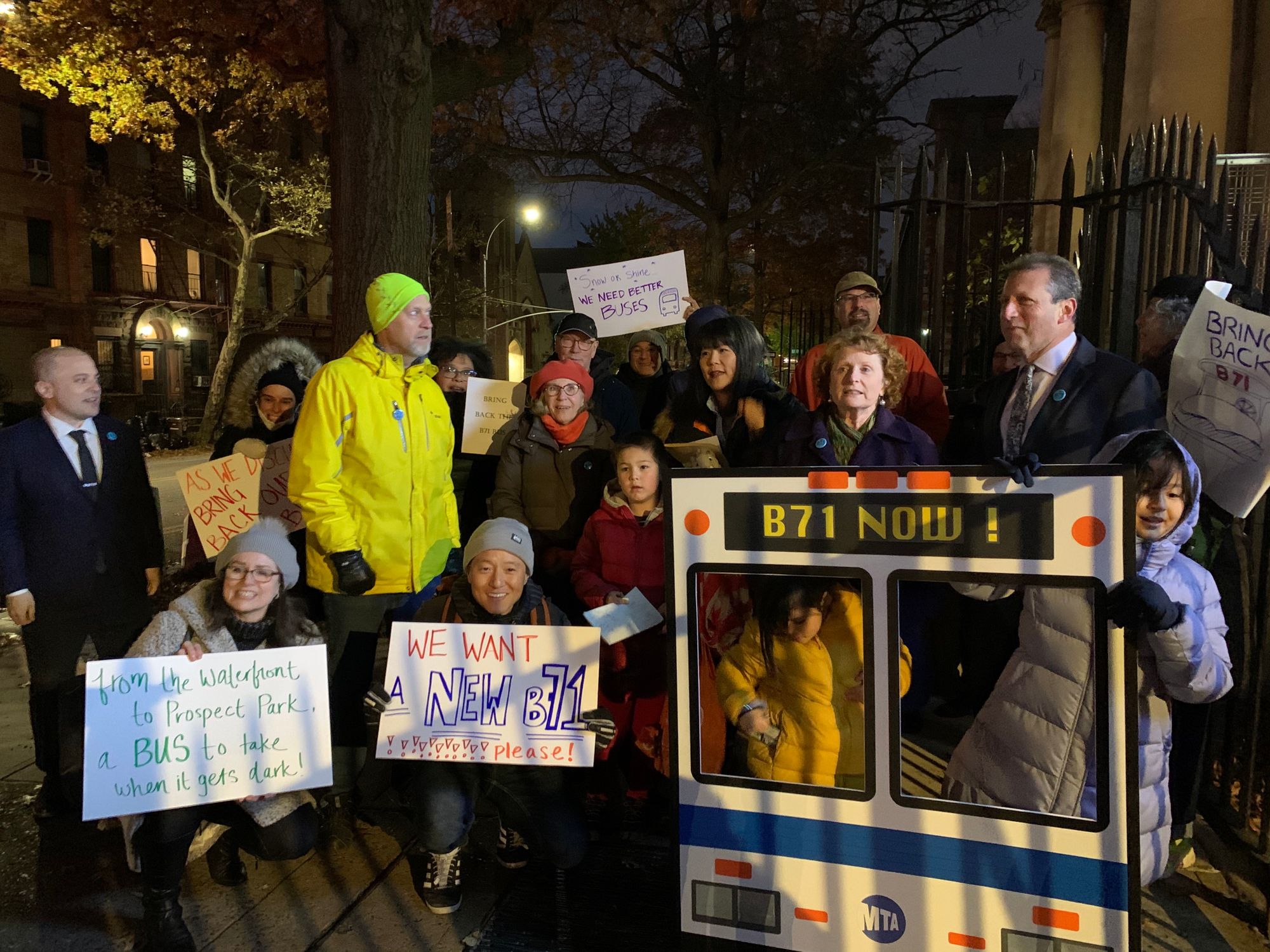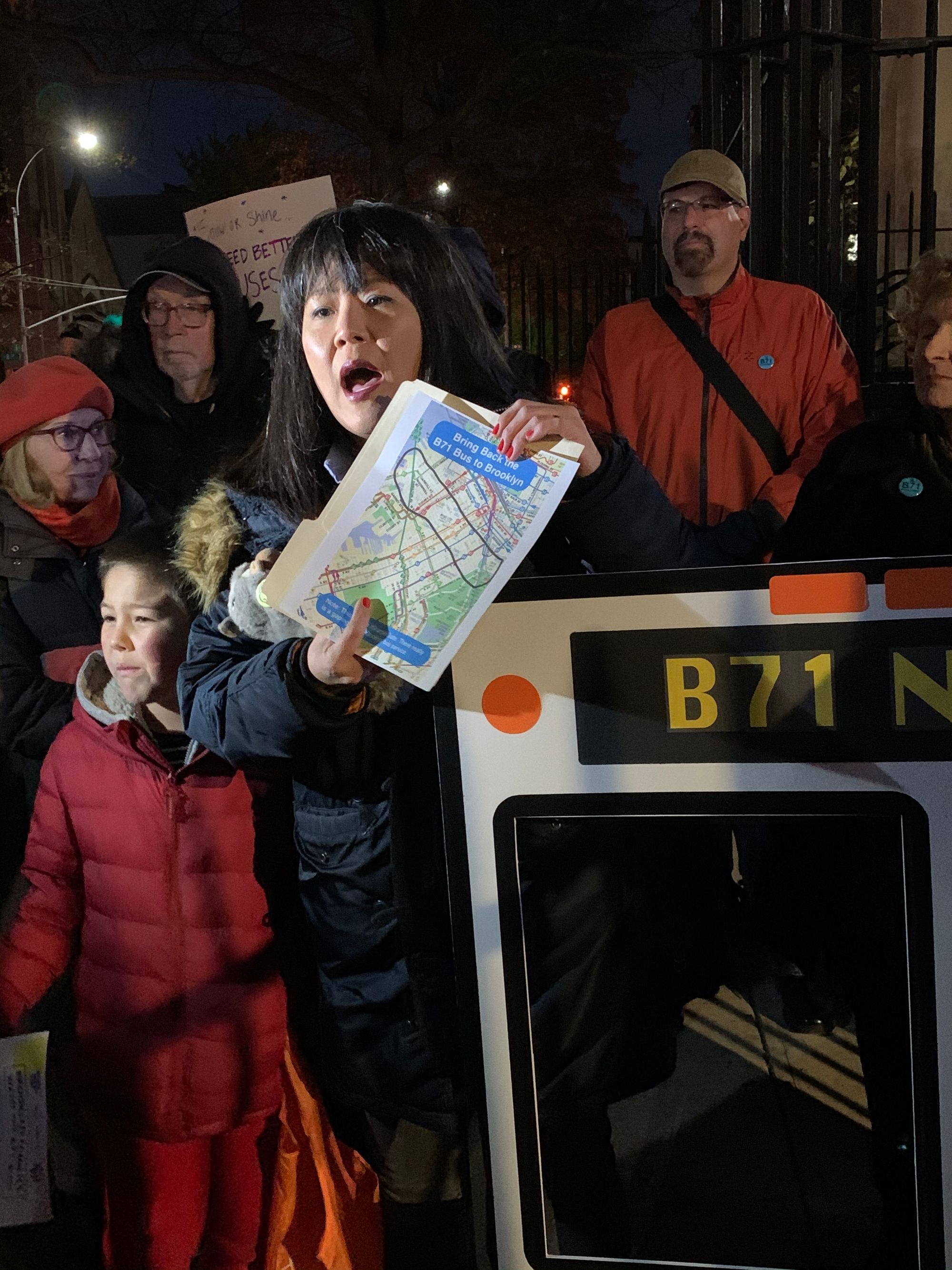Residents Want B71+ Bus Service Restored to Connect Red Hook, Carroll Gardens, and Park Slope


PARK SLOPE — Residents from Red Hook, Carroll Gardens, Gowanus, and Park Slope rallied before the MTA’s open house on the Brooklyn Bus Network Redesign in Park Slope on Tuesday night, pleading for the agency to restore the east-west bus route connecting the neighborhoods.
NYC council member Brad Lander who represents the area led the rally and delivered signatures to the MTA from over 1,300 community members in support of a B71+ route. Council Member Carlos Menchaca and Assemblymember Jo Anne Simon were also there to express their support for the B71+ bus service.
The B71+ bus service would fill the transit gap left by the MTA’s elimination of the B71 bus in 2010, due to budget cuts and low ridership. Elected officials and communities have called to restore an east-west bus route since 2012.
“This is a long time coming. We didn’t want the B71 cut when it was cut,” Assemblymember Simon said. “People needed to get from Carroll Gardens to Park Slope, from the Boerum Hill area and Gowanus to Park Slope, and there’s no good way to do it without going around in circles.”

The MTA’s series of open houses are registering public feedback on bus service and routes in order to comprehensively redesign the Brooklyn bus network.
“We are not specifically calling for the exact same route that the B71 served, but for a route that connects the communities along the waterfront (including Red Hook) to cultural institutions in central Brooklyn,” said Naomi Dann, communications director at the office of Council Member Brad Lander.
The rally aimed “to send the message to the MTA that a similar route is still very much needed,” she said.
The B71 coalition website stated that since the discontinuation of the B71, the population around the proposed route has grown by 10.7%—a higher rate than the population growth in New York City or Brooklyn alone. They anticipate greater growth in the coming years from the Gowanus rezoning.
“It’s been a better part of a decade that these neighborhoods have been without any cross-town bus service,” said Eric McClure, vice-chair and transportation co-chair of Community Board 6. “CB6 does not have any accessible subway stations within our boundaries, so for people who aren’t easily able to access the subway—seniors, disabled people, people pushing strollers—not being able to get on a bus to go across town is a real hardship.”

The MTA press office did not respond to a request for comment. They stated in a press release that the historic redesign of Brooklyn’s bus network will be based on analysis from city planners and from gathering public feedback that will continue throughout 2020.
Assemblymember Simon expressed optimism that an east-west bus route may be incorporated with the Brooklyn Bus Network Redesign.
“There are routes used in Brooklyn that maybe aren’t the most efficient, that maybe don’t go to the right places anymore because they were originally trolley routes, but [with] the B71, we know where it should go and who it should serve,” she said.
Red Hook community members expressed support regarding better intra-borough connectivity. “Transit activists and advocates in Red Hook have asked the MTA to do a Brooklyn Bus Redesign workshop in the Red Hook neighborhood, and we join in their call to have that,” Council Member Lander said, citing the neighborhood’s lack of subway lines and limited bus service.



